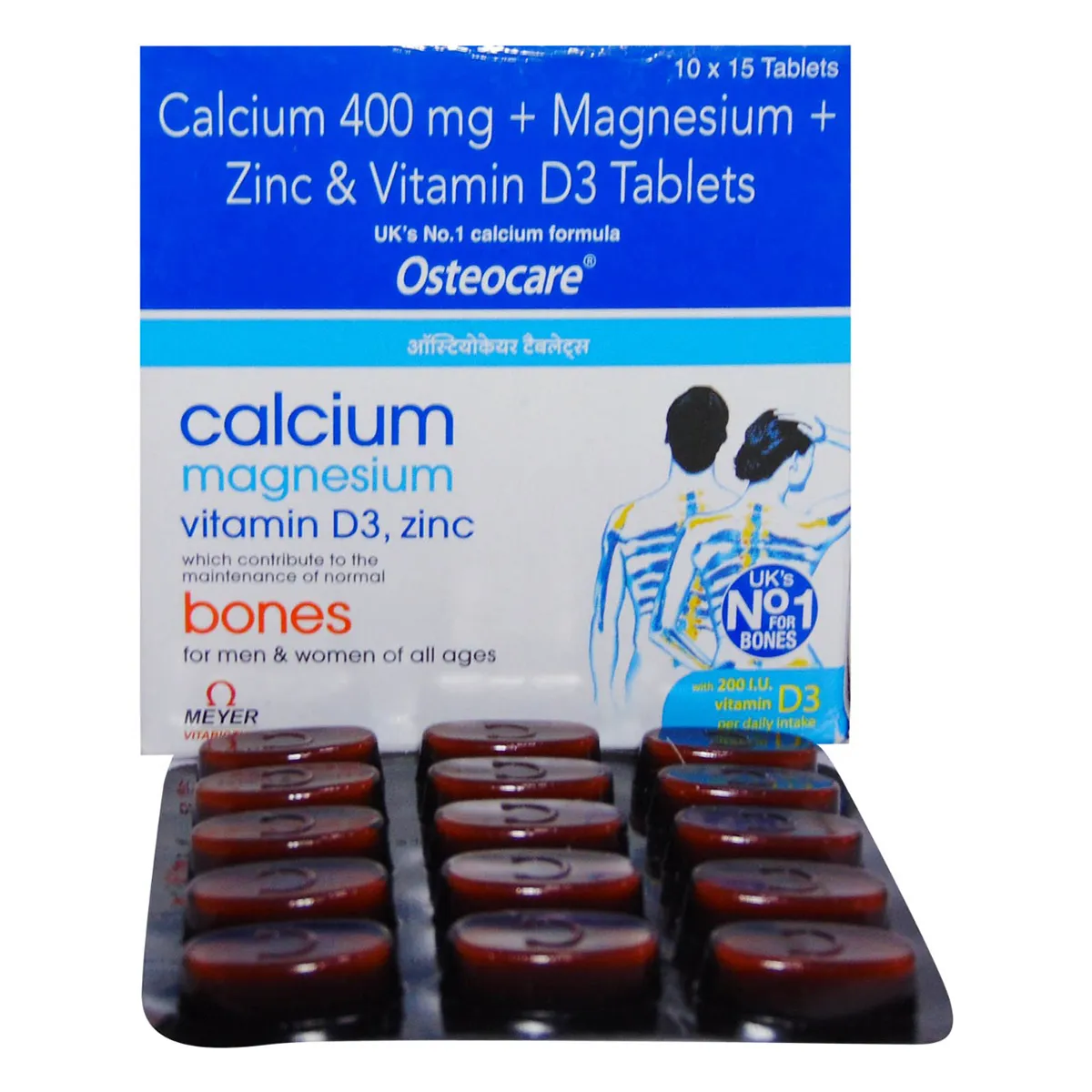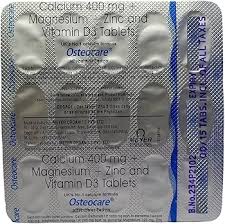🦴💪 Calcium with Magnesium, Zinc & Vitamin D3 – Complete Bone & Immunity Support
🧾 Overview
The combination of Calcium with Magnesium, Zinc, and Vitamin D3 is a popular nutritional supplement used to support bone health, immune function, muscle performance, and overall metabolic balance. Each component works synergistically to enhance calcium absorption, optimize bone mineralization, and maintain physiological balance.
This supplement is commonly recommended for:
-
Osteoporosis prevention and treatment
-
Postmenopausal bone health
-
Growing children and adolescents
-
People with nutritional deficiencies or limited sun exposure
-
Elderly individuals to prevent falls and fractures
🔬 Key Ingredients and Their Functions
✅ Calcium (500–1000 mg)
-
Builds and maintains strong bones and teeth
-
Vital for nerve conduction, muscle contraction, and blood clotting
✅ Magnesium (100–400 mg)
-
Helps convert Vitamin D into its active form
-
Supports muscle and nerve function
-
Aids in energy production and regulates heartbeat
✅ Zinc (7.5–15 mg)
-
Supports immune health, wound healing, and bone density
-
Plays a role in cell growth and repair
✅ Vitamin D3 (Cholecalciferol, 400–1000 IU)
-
Enhances calcium and phosphorus absorption in the intestines
-
Promotes bone mineralization
-
Supports immune regulation
💊 How to Use
-
Dosage: Usually 1–2 tablets/capsules per day or as directed by a physician
-
Best Time: After meals to enhance absorption and reduce gastrointestinal discomfort
-
Hydration: Drink plenty of water when taking the supplement
-
Avoid combining with iron supplements or high-fiber foods at the same time (may reduce absorption)
😕 Common Side Effects
-
Mild constipation or diarrhea
-
Nausea or stomach discomfort
-
Metallic taste (from zinc)
-
Gas or bloating
These effects are usually temporary and improve with continued use.
🚨 Serious Side Effects (Rare)
-
Hypercalcemia (excess calcium in the blood) – symptoms include:
-
Fatigue, nausea, vomiting
-
Frequent urination, confusion
-
-
Kidney stones with prolonged high-dose calcium intake
-
Zinc overdose may lead to:
-
Immune suppression
-
Nausea, headaches, loss of appetite
-
-
Allergic reactions: Rash, swelling, difficulty breathing (seek medical attention)
🩺 Monitoring & Follow-Up
-
Serum calcium and magnesium levels (especially in long-term use)
-
Vitamin D levels in patients on chronic supplementation
-
Kidney function tests (creatinine, BUN)
-
Monitor signs of calcium overdose in patients with kidney disease or on multiple supplements
-
Bone Mineral Density (BMD) in osteoporosis-prone individuals
⚠️ Warnings & Precautions
-
Avoid in patients with:
-
Hypercalcemia
-
Severe kidney dysfunction
-
History of kidney stones
-
-
Use cautiously in:
-
Pregnancy and breastfeeding (safe if recommended by a doctor)
-
People taking digoxin, thiazide diuretics, or antacids
-
-
Zinc may interact with certain antibiotics – take supplements at least 2 hours apart
✅ Summary
Calcium with Magnesium, Zinc, and Vitamin D3 is a well-rounded supplement supporting bone health, muscle function, and immune defense. It’s widely used for preventing osteoporosis, especially in older adults, postmenopausal women, and individuals with low dietary intake.
When used appropriately under medical supervision, it is safe and effective, though overuse may lead to issues such as hypercalcemia or kidney stones. Routine monitoring and adherence to recommended dosages are key to maximizing benefits and minimizing risks.
Note: This information is intended for educational purposes and should not replace professional medical advice. Always consult a healthcare provider for personalized guidance.


Reviews
There are no reviews yet.